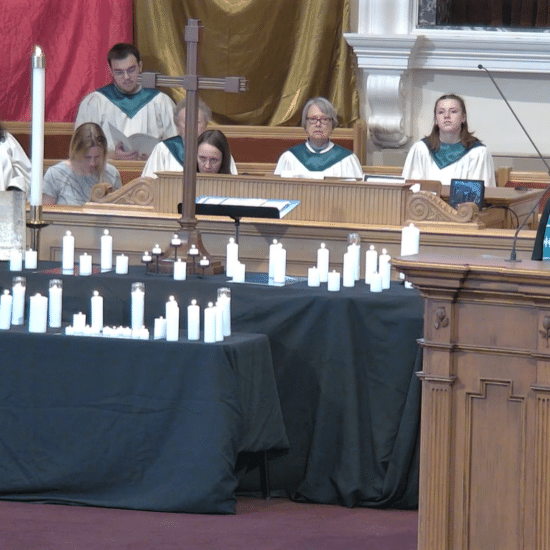By Bill Webb
Word&Way Editor
Baptists around the world are celebrating 400 years of Baptist contributions throughout 2009.
This issue of Word&Way tips a hat to Baptist significance and heritage over these centuries of influence and service. The New Voice Media Group — Texas Baptist Standard, Virginia Religious Herald, Associated Baptist Press and Word&Way — produced this week’s cover story on the 400th anniversary of the Baptist movement. The stories appear on pages 1 and 6-9.
 From humble beginnings in Europe and colonial America, Baptists have blanketed the earth with an estimated 200,000 churches and 50 million members. The earliest of these sects of Baptists were courageous, often choosing death rather than relinquish their Baptist principles. Early efforts to silence Baptists resulted in some Baptist funerals, to be sure, but the Baptist movement certainly was not stamped out.
From humble beginnings in Europe and colonial America, Baptists have blanketed the earth with an estimated 200,000 churches and 50 million members. The earliest of these sects of Baptists were courageous, often choosing death rather than relinquish their Baptist principles. Early efforts to silence Baptists resulted in some Baptist funerals, to be sure, but the Baptist movement certainly was not stamped out.Early and subsequent Baptists were characterized by their outspoken nature and willingness to fight for what they believed to be right and against what they believed to be counter to the example of Christ, the admonition of scripture and the leadership of the Holy Spirit. For the most stalwart of Baptists, speaking out was not so much a right as a responsibility. For 400 years, prophetic words have thundered from the lungs of Baptist prophets.
No two Baptists are alike, so arriving at a clear definition of “Baptist” is not easy. We Baptist disagree over aspects of worship, evangelism, missions, justice issues and the response to human need. That may tell us why there are so many Baptist denominations, conventions and churches in the world today. Being Baptist does not necessarily require agreement, particularly on non-essentials.
Baptists were early champions of religious liberty. They saw the fallacy of placing religion in the hands of magistrates — government leaders — and of state churches. The early Baptist freedom-fighters stood up to the authorities, demanding religious freedom from state control not only for themselves but for other religious outsiders.
They could do no less because they were convinced that God alone — not a pastor or priest — had the power and authority to prick a man’s conscience. Because they so strongly advocated this “soul freedom,” they had no choice but to press for religious liberty for everyone.
Baptists did not always agree on baptism by immersion and a lot of other things, but from the beginning Baptists by and large have resonated with the idea of soul freedom and religious liberty. it was a dangerous endeavor. This crusade countered the culture. The state liked controlling religious affairs and exercising that power. The state church likewise was threatened by the idea of losing its favored status.
Baptist forebears fought successfully for this protection in the Bill of Rights, else we might still have a state church in America today. It is still a live battle for Baptists in other parts of the world who do not have the strength in numbers that Baptists in America enjoy today.
Baptists are not perfect. They sometimes are at their best, and sometimes not.
• Baptists are at their best when they live on the edge, and at their worst when they live on the fringe. To function out of deep spiritual conviction places anyone and any group on the edge. Self-serving or controlling activities place them on the fringe.
• Baptists are at their best when they seek justice for others, and at their worst when they seek special consideration for themselves. The best Baptists can become indignant — as mad as wet hens sometimes — at the mistreatment or plight of others. Certainly this is a higher motivation than self-interest.
• Baptists are at their best when they honestly disagree with each other, and at their worst when they resort to devious and dishonest means in attempts to enhance their own positions within the Baptist family.
• Baptists are at their best when they appreciate each other in their diversity, and at their worst when they use differences as a wedge to promote division or undermine valid attempts at worthwhile ministry.
Baptists do not do as well as they should in helping members understand the Baptist heritage. Baptist accomplishments have been positively outstanding in many arenas. It is still a good thing to be known as a Baptist.






